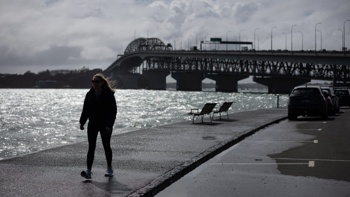Unequal access to palliative care and weaknesses in safeguards around assisted dying are compromising the patient autonomy promised by the End of Life Choice Act, a new report into euthanasia in New Zealand has found.
“True patient choice” was being undermined by limited access to palliative care, weak safeguards and poor understanding of end-of-life matters, said Maryanne Spurdle, who wrote Interrogating Choice: Euthanasia and the Illusion of Autonomy for faith-based think tank Maxim Institute.
The institute is calling for fully funded hospices, strengthened safeguards around euthanasia, ensuring all patients received good end-of-life information, and training more physicians to provide palliative care.
Euthanasia was fully funded, but palliative care – which addressed needs such as pain management and in-home care provision – was not, and some regions were served by few or no palliative care specialists.
“Some people don’t have access to palliative care,” Spurdle told Ryan Bridge on Herald NOW this morning.
“So people who do, they have the choice to have someone counsel them and their families, they have the choice to have expert pain relief … [for others] it’s like a game of ‘Would you rather?’, the Maxim Institute research manager said.
“Would you rather kill yourself, or would you rather die in an emergency ward? Should people have the choice of euthanasia if they don’t have the choice of palliative care? Is that fair?”
In Belgium, euthanasia law required those seeking to end their lives to have access to palliative care, and be referred to a palliative care team before making a final decision, Spurdle said.
“I’d want that.”

The End of Life Choice Act was generally working well and there had been no wrongful deaths among the 978 participants, a Ministry of Health report released in November last year found. Photo / Getty Images
Kiwis who meet certain criteria have been able to end their lives under the End of Life Choice Act since November 2021.
Last November, a statutory Ministry of Health review found the law was generally working well and there had been no wrongful deaths among the 978 participants.
Among 23 recommendations for change was the “gag clause” preventing doctors from raising assisted dying with patients, and strengthening of oversight of the law after the Herald revealed last October two watchdogs had raised concerns about gaps in the compliance process.
Palliative care specialist Dr Jane Greville and ethics expert Dr Dana Wensley – two members of a three-person committee tasked with ensuring assisted deaths complied with the law – said last year the oversight process was so inadequate they wouldn’t have known if someone had died wrongly.
In one example, a non-English speaking patient suspected of having frontal dementia was approved for assisted dying despite not having an interpreter present for their assessment.
The ministry said at the time there were multiple safeguards built into the law, though it would examine the scope of the committee in the statutory review released the following month.
She was concerned by the watchdogs’ revelations, Spurdle told Herald NOW.
“We have legalised killing people … the idea is, ‘this is a choice, it’s fair if somebody wants to die and they’re suffering and they’ve got a six month prognosis’.
“If any of those things isn’t true … then you’re killing people.”
People’s choices were also affected by there being no “cooling off” period around euthanasia, allowing time for alternatives to be sought, a measure in place in other parts of the world where assisted dying was legal, Spurdle’s report found.
“The shortest time from application to death is just two days, and the most common period is two weeks.”
The report also raised concerns about the ministry decision to remove the “gag clause” so doctors could proactively offer euthanasia to eligible patients.
As well as power imbalances, this risked discouraging patients from seeking alternatives.
There was also an erosion of conscience protections with the ministry recommendation that all care facilities be required to allow euthanasia on-site, or lose their certification, Spurdle’s report said.
And despite laws protecting conscientious objection, the ministry wanted physicians to participate in referrals – something that had increased burnout and staff retention overseas.
“You can’t have true choice at the end of life without understanding what natural death entails, having access to palliative care, and upholding safeguards for people who might be coerced into euthanasia”, Spurdle said.
“Currently, it’s far easier for terminally ill Kiwis to get assisted suicide than assistance to die well.”
Take your Radio, Podcasts and Music with you









